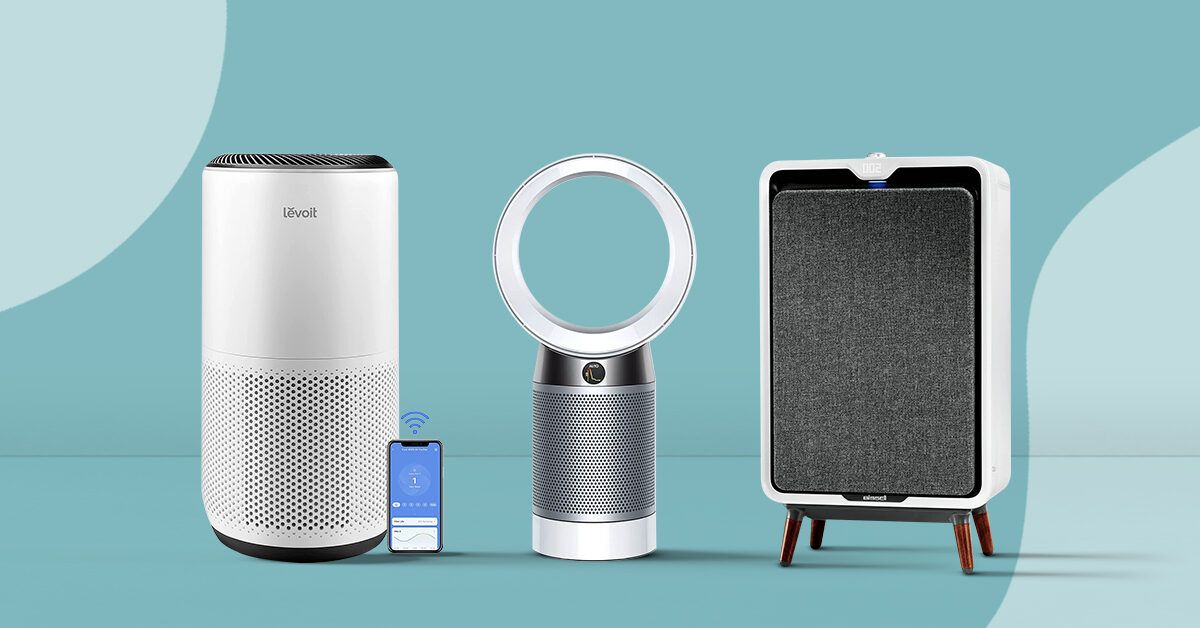Best Air Purifiers for Allergies and Asthma
Living with these conditions can be challenging, especially when environmental triggers exacerbate symptoms. Fortunately, one effective way to mitigate these triggers is by using air purifiers specifically designed to combat allergens and asthma-inducing particles in your home.

Best air purifiers for asthma and allergies
Allergies and asthma are common respiratory conditions that affect millions of people worldwide. Living with these conditions can be challenging, especially when environmental triggers exacerbate symptoms. Fortunately, one effective way to mitigate these triggers is by using air purifiers specifically designed to combat allergens and asthma-inducing particles in your home. In this comprehensive guide, we will explore the best air purifiers on the market for allergies and asthma, helping you make an informed decision to improve the air quality in your living space and breathe easier.
Understanding Allergies and Asthma
Before we delve into the world of air purifiers, it's crucial to have a basic understanding of allergies and asthma.
Allergies: Allergies are immune system reactions to substances that are generally harmless but trigger an overreaction in some individuals. Common allergens include pollen, dust mites, pet dander, mold spores, and certain foods. Allergic reactions can manifest as sneezing, runny or stuffy nose, itchy or watery eyes, skin rashes, and more. Airborne allergens are a significant concern, as they can be inhaled, leading to respiratory symptoms.
Asthma: Asthma is a chronic respiratory condition characterized by inflamed airways, which can become narrower and produce excess mucus. This can make it difficult to breathe, resulting in symptoms like wheezing, coughing, shortness of breath, and chest tightness. Asthma symptoms can be triggered or exacerbated by allergens, pollutants, respiratory infections, and exercise, among other factors.
Air Purifiers A Solution for Allergies and Asthma
Air purifiers, also known as air cleaners, are devices designed to remove particles and pollutants from the air. They can be an excellent addition to your home, particularly if you suffer from allergies or asthma. Here's how they work:
Filtration: Air purifiers use various filtration methods to trap and remove particles from the air. The most effective air purifiers for allergies and asthma typically feature HEPA (High-Efficiency Particulate Air) filters. HEPA filters can capture particles as small as 0.3 microns, including dust, pollen, pet dander, and even some bacteria and viruses.
Activated Carbon Filters: Many air purifiers also include activated carbon filters that adsorb odors, chemicals, and volatile organic compounds (VOCs), which can be asthma triggers.
UV-C Light and Ionization: Some advanced air purifiers employ UV-C light or ionization technology to kill or neutralize airborne bacteria, viruses, and mold spores.
Air Exchange Rate: The effectiveness of an air purifier depends on its air exchange rate, which is the number of times it can filter the air in a room per hour. A higher exchange rate is generally more effective at removing allergens and pollutants.
Now, let's dive into the top air purifiers for allergies and asthma.
Dyson Pure Cool TP04: The Dyson Pure Cool TP04 is a highly regarded air purifier that not only effectively removes allergens and pollutants but also features a sleek design and doubles as a fan. It employs a HEPA and activated carbon filter to capture particles and odors, and its bladeless fan design circulates purified air throughout the room. The Dyson Pure Cool also has a real-time air quality display and can be controlled via a smartphone app, making it a top choice for those seeking both functionality and aesthetics.
Honeywell HPA300: The Honeywell HPA300 is a robust air purifier with a true HEPA filter that can capture particles as small as 0.3 microns. It is designed for large rooms, making it an excellent choice for open living spaces or bedrooms. The HPA300 boasts a high air exchange rate and three cleaning levels, allowing you to customize its performance based on your needs. It's a no-nonsense, budget-friendly option for those prioritizing efficiency.
Blueair Blue Pure 211+: The Blueair Blue Pure 211+ is known for its simple yet effective design. It features a combination filter that includes mechanical and electrostatic filtration to remove particles and pollutants. The filter is washable, which can save you money on replacement filters in the long run. This air purifier is exceptionally quiet, making it ideal for bedrooms or quiet spaces. Its high Clean Air Delivery Rate (CADR) ensures rapid air purification.
Coway AP-1512HH Mighty: The Coway AP-1512HH Mighty is a compact air purifier that punches above its weight in terms of performance. It includes a HEPA filter and an eco mode to conserve energy when air quality is good. The Coway Mighty also has a built-in air quality indicator and a timer for convenience. Its small footprint and affordable price make it a solid choice for smaller rooms.
RabbitAir MinusA2: If you're looking for a premium air purifier with customizable options, the RabbitAir MinusA2 is worth considering. This model can be wall-mounted and comes in various designs to blend seamlessly with your home decor. It features a six-stage filtration process, including a HEPA filter, activated carbon filter, and optional specialized filters like one for pet allergies. The RabbitAir MinusA2 is also ultra-quiet and boasts a high CADR.
Winix 5500-2: The Winix 5500-2 is a reliable air purifier that combines HEPA filtration with a washable AOC (Advanced Odor Control) carbon filter to tackle allergens and odors. It features a built-in air quality sensor and a remote control for easy operation. The Winix 5500-2 is designed for medium to large rooms and is known for its affordability and efficiency.
Living with allergies and asthma can be challenging, but investing in a high-quality air purifier can make a significant difference in your quality of life. The air purifiers mentioned in this guide are some of the best options on the market, each with its unique features and benefits. When selecting an air purifier for allergies and asthma, consider factors such as room size, filtration technology, noise level, and additional features like air quality sensors and smart connectivity.
Remember that while air purifiers can help reduce allergens and asthma triggers, they are not a substitute for medical treatment or proper home hygiene. Regular cleaning, dusting, and vacuuming, along with good ventilation practices, should complement the use of air purifiers for optimal results.
Ultimately, the goal is to create a clean and healthy indoor environment that allows you to breathe easy and enjoy your home to the fullest, regardless of allergies or asthma. Choose the air purifier that best suits your needs, and take a step towards a more comfortable and allergen-free living space. Your health and well-being deserve it.
What's Your Reaction?

















